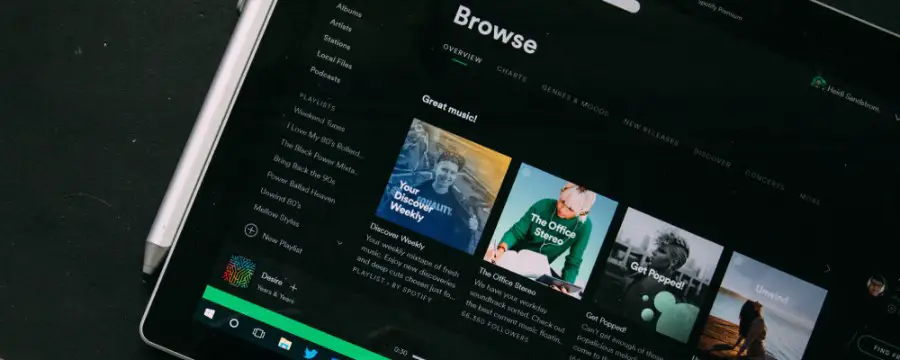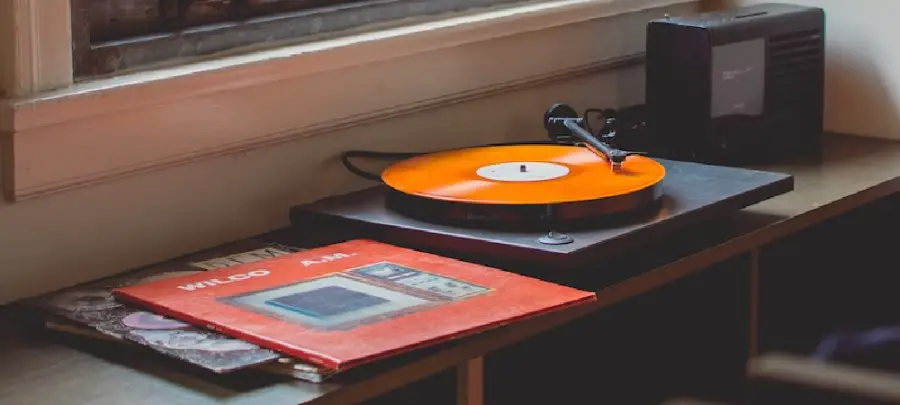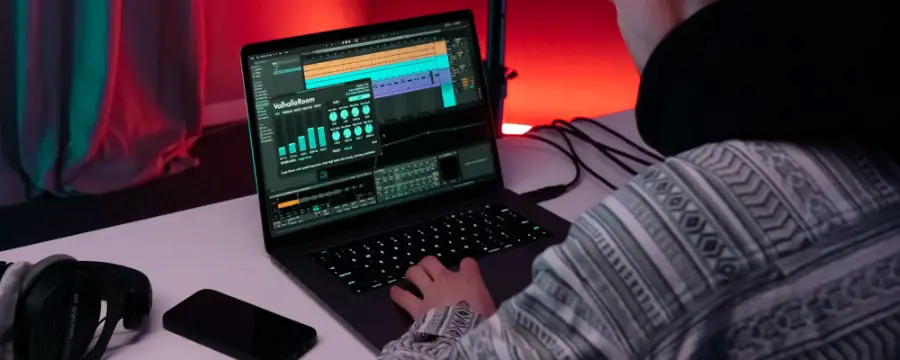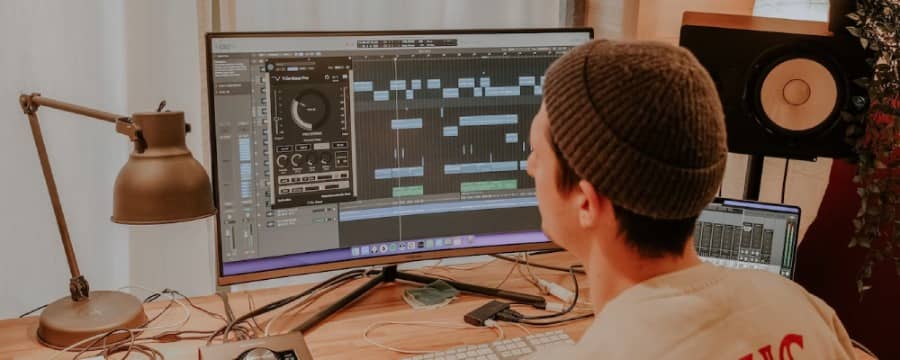Music is an art form that is constantly evolving and changing. There are some basic principles that guide musicians, but every artist has their own unique style and method of creating music. That being said, there are certain things you can do to ensure that your music stands out from the crowd and makes an impact on listeners.
If you’re wanting to take your music to the next level, here are 13 practical tips to help you make better music and get the most out of your creative ideas:
- Learn Basic Music Theory
- Listen To Music That Inspires You
- Ask For Feedback
- Use Reference Tracks
- Collaborate With Other Musicians
- Analyze Other Music
- Create A Studio Space You Love
- Don’t Overthink
- Don’t Be Afraid To Experiment
- Reuse Elements From Previous Songs
- Get Out Of Your Comfort Zone
- Master Your Tracks
- Practice Makes Perfect
Without further ado, let’s get started!

1. Learn Basic Music Theory
Understanding the basics of music theory is one of the best ways to improve your songwriting abilities. Music theory is the set of principles that explains how music is organized and how it works. If you want to learn how to write better music, understanding these principles will help create musically satisfying melodies, rhythms and harmonies, as well as help you make better use of your creative ideas.
2. Listen To Music That Inspires You
Listening to music that you enjoy can inspire you to implement similar elements into your own tracks. This technique can help you stay motivated and inspire you to create music that others enjoy. Try to figure out what you like about particular songs and what about them makes them special. Pay attention to how certain songs make you feel and how those emotions are communicated through the music.

3. Ask For Feedback
Getting feedback from others who can be honest is key to improving your music. Whether it’s a friend or family member, a fellow musician or an online community, gather feedback from real listeners and evaluate how a song can improve based on that feedback. Once people have heard and reacted to your work, take notes on what they liked and didn’t like about it. Take criticism as an opportunity for growth.
4. Use Reference Tracks
Reference tracks are songs that you can listen to while writing or producing your own music to get some inspiration and ideas from. The trick here is finding songs with a similar style, mood, instrumentation etc., so if there’s something about those elements that catches your ear, then you can use them as inspiration points for your own music.

5. Collaborate With Other Musicians
Collaborating with other musicians can help you learn new techniques, find new ways to develop your sound and be inspired by like-minded people. Whether it’s a jam session, songwriting session or simply sharing ideas and feedback on a track, collaborating with other artists can be incredibly valuable to your music career. It can also lead you to more opportunities and help you develop industry connections.
6. Analyze Other Music
Critically listening to other artists’ music can be extremely beneficial to the quality of your own work. When you listen to your favorite artists, be sure to take notes on what you like about their work. What qualities makes their music stand out? What elements make it memorable? This process is a great way to learn how others write and arrange music.

7. Create A Studio Space You Love
A great way to improve the quality of your music is to create a studio space that you love and enjoy working in. When you work in a room that you feel comfortable in, it’s easier to create high-quality work. You’ll feel more inspired and motivated, so you can put all of your energy into your music. You will find it easier to focus and will feel more comfortable and relaxed.
8. Don’t Overthink
When you’re creating music, it’s easy to get caught up in thinking about the things you’ve done wrong. Try to avoid getting hung up on the details of what you’re doing and instead, think about the end goal. The more relaxed you are with your writing process and the more open-minded you are about what comes out of it, the easier it will be for you to think more positively about what you have created.

9. Don’t Be Afraid To Experiment
Whether you try experimenting with new sounds and instruments or try out different genres altogether, experimentation can lead to exciting new things and can help you to stand out as an artist. Remember that there are no right or wrong answers when it comes to making music–there is only what works for you as an artist.
10. Reuse Elements From Previous Songs
Implementing elements from your previous songs that really stand out can help you improve the quality of your music. This could be anything from the instruments, chords, lyrical theme or synth presets. If you’ve made something before that worked really well, try incorporating similar ideas into your new projects.

11. Get Out Of Your Comfort Zone
As a musician, it can be easy to gravitate towards what is comfortable and familiar–perhaps it’s a certain or genre of music or set of instruments. But if you want your music to be truly unique and stand out from the crowd, then it’s important to try and get out of your comfort zone. Challenging yourself with new sounds and styles can help elevate your productions to the next level.
12. Master Your Tracks
One simple way to improve the quality of your music is by having it mastered. Mastering is the final step in the music production process, making your music sound crisp, clear, polished and ready for distribution. Although hiring a mastering engineer may cost you between $50 and $200, investing in this step is the best way to ensure that your music sounds as good as possible.

13. Practice Makes Perfect
When it comes down to it, the best way to get better at something is by doing it over and over again—and making mistakes along the way is part of that process. No matter what kind of music you like, regularly writing new songs can lead to significant improvement. Be patient and know it takes time and effort to be successful.
Related Posts:
15 Practical Tips To Help You Sing Better
7 Things To Do Before You Release A Song
13 Practical Ways To Overcome Writer’s Block
Want To Know More?
Here at Live Aspects, we have dozens of useful lessons and tutorials created to enhance your music production skills and help speed up the learning process. You can access our huge range of music theory lessons and production tips and tricks here.